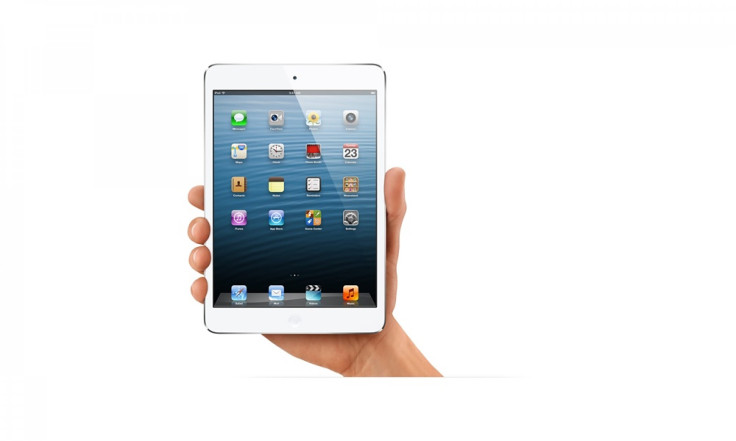Apple iPad Mini Release Date In China Met With Swarms Of Scalpers, But Little Crowds [REPORT]

While Apple’s reservation-only system in China may have stopped riots from breaking out during product launches, it’s done little to stop the scalpers.
Apple’s iPad Mini launched in China on Friday, and many of those who turned up at Apple stores were looking to resell the device for a profit. However, according to the Wall Street Journal, Apple recently implemented stricter regulations to make it tougher for scalpers to interfere with legitimate sales.
In order to purchase Apple’s 7.9-inch slate from one of its brick and mortar locations, Chinese customers must participate in a lottery one day in advance. Any buyer selected is limited to only two iPad Mini units and is required to bring photo identification.
This system was implemented after unruly crowds and riots rocked Apple’s iPhone 4S in China nearly a year ago in January. This caused Apple to postpone sales of its previous flagship handset, which drew thousands of customers to the country’s five Apple retail locations. China now has seven Apple stores.
Prior to that incident in May 2011, the launch of Apple’s iPad 2 and the white iPhone 4 sparked rowdy behavior in Beijing. Disgruntled customers shook a glass door at Sanlitun’s Apple Store and caused it to shatter, according to reports.
Outbreaks such as these have forced Apple to enforce anti-scalping rules for its Retina Display iPad launch in China this past July. Some local media have reported that scuffles at this launch could have been between rival scalpers, but this has not been confirmed.
Although the monstrous crowds that previously greeted new Apple products have disappeared, that doesn’t mean rowdiness has completely subsided. During Friday’s iPad Mini launch, a Wall Street Journal reporter was harassed by a group of scalpers for filming them outside of Sanlitun’s Apple Store. The scalpers told the reporter that it was an invasion of their privacy.
According to the publication, the swarm of scalpers proceeded to “kick, swat and push” the reporter after he pointed out that they were conducting business in a public place.
“I suggest you don’t film here, or film from farther away,” an Apple employee said when asked why he didn’t intervene. The worker also added that he wasn’t able to protect anyone outside the confines of the store.
Apple declined to comment on the matter, and The Sanlitun Village mall did not immediately respond to the Wall Street Journal’s request for comment.
However, despite this unruly anticipation associated Apple launches, analysts are unsure of how the iPad Mini will fare in China. Mark Newman, senior analyst at Sanford Bernstein, told the Wall Street Journal that global sales of the smaller slate have been modest thus far. Chinese customers in particular may not be as receptive to the device due to the availability of similar, les expensive products from competitors.
“Most Chinese consumers have a modest disposable income, and a lot of them are going for cheaper offerings,” Newman said to the publication. “We believe the mass market is more interested in specs rather than brand-similar to what we’ve seen for smartphones in China.”
Apple announced its Chinese release dates for the company’s most recent products at the end of November. On Friday, Dec. 14, just one week after Apple’s new tablets launched, the iPhone 5 will be available in China.
© Copyright IBTimes 2024. All rights reserved.












